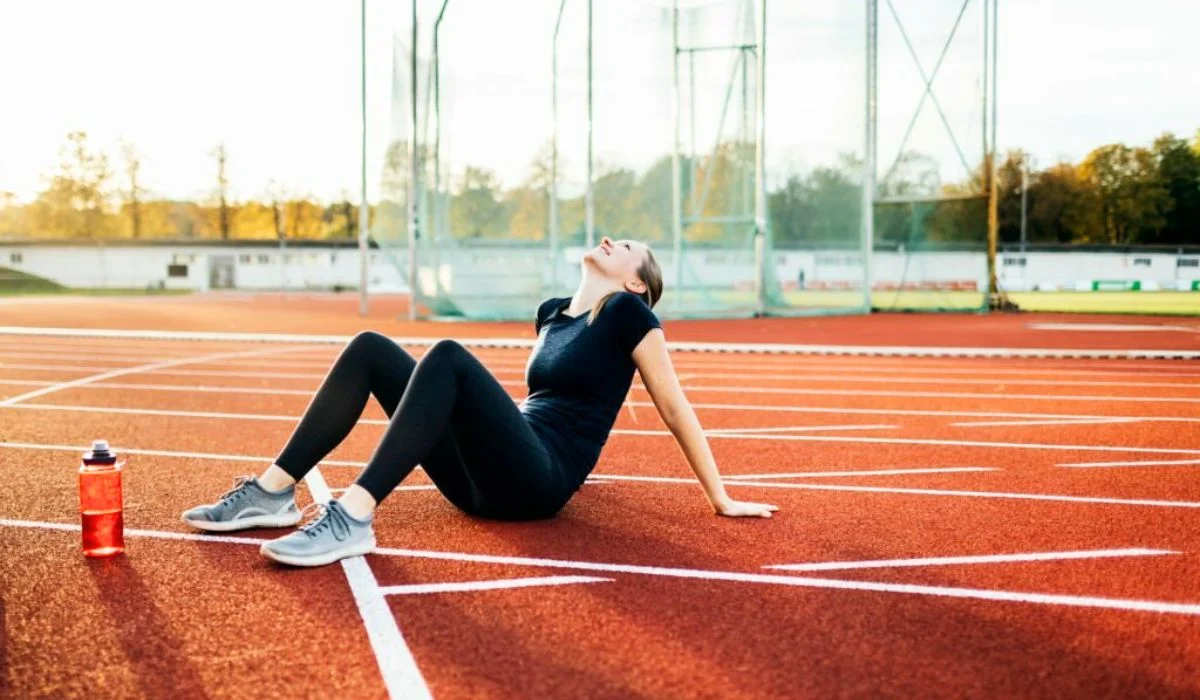The menstrual cycle is a mentally and physically challenging phase for every person who suffers from it.
This is a period of hormonal turmoil with lots of physical symptoms like stomach cramps, fatigue, etc., which affect every female’s everyday life and female athletic performance as well.
Now, with increasing education about sports and good menstrual products, more females are participating in different types of sports and also performing well and winning medals for their country and team.
What Is The Menstrual Cycle? An Overview
The menstrual cycle is an entirely natural and hormonal cycle that females undergo each month. It has three main phases: the follicular phase (Days 1-3), the ovulation (around 14 days), and the luteal phase (5–28 days).

During this phase, women suffer from different difficulties like abdominal cramps, mood swings, nausea, bloating, fatigue, headaches, etc. Period pain and mood swings make women exhausted and tired, which affects their personal and professional lives.
Also Check: Hydration Strategies For Peak Athletic Performance: Maximize Your Potential
How Does Menstruation Affect Athletic Performance?
As we know, menstruation is a hormonal cycle, and the primary hormones that participate in the period are the female sex hormones estrogen and progesterone.
Female sex hormone fluctuations have been linked to changes in inflammation, metabolism, muscle activation, and body composition, which affect athlete performance.
This peak corresponds to a decrease in performance among many females. Inflammation lowers while the body prepares to ovulate, peaks around ovulation, and then increases following ovulation and peaks during menstruation. This peak matches a decrease in performance among many female athletes.
Female sex hormones rise after ovulation and peak after menstruation, and this also decreases the performance of female athletes.
Proper Diet And Training To Decrease Menstrual Symptoms
It is shown in the study that proper diet and training can decrease menstrual symptoms. Women can take some proactive steps to reduce the pain of the menstrual cycle: –
- Hydration: It is vital to have proper hydration and water-rich foods, and drinking lots of water can reduce bloating and also help to reduce body pain.
- Nutrition: It is essential to include nutritious, well-balanced food in your diet. Green leafy foods and other foods can help reduce period pain.
- Supplements: Some athletes take supplements like iron and magnesium to reduce deficiency during the menstrual cycle. It is so important to consult a doctor before starting any new supplements.
- Adapted Training: Adapting training can increase performance; an intense workout may be effective during the follicular phase, when the estrogen level rises, whereas the luteal phase may be a good time for lighter training, flexibility exercise, and recovery.
Female athletes can benefit from creating personalized training and nutrition programs aligned with their period cycle to increase their performance.
These plans can be influenced by keeping track of one’s cycle and noticing the physical and mental changes with the help of experienced and dedicated sports coaches, sports nutritionists, and doctors.
Managing Periods With Contraceptives
Hormonal contraceptives, such as birth control tablets or intrauterine devices (IUDs), can provide a solution for some athletes, especially those who suffer from very painful and unmanageable periods, to manage and control their menstruations. This technique can help with hormonal regulation by reducing symptoms and postponing the period date.
However, it is so important that choosing to use contraceptive techniques to manage the period be a well-informed choice. Athletes always consult a gynecologist or doctor before choosing a contraceptive method, and this technique has some side effects and long-term complications.
The Conversation Continues
The conversation about how the menstruation cycle affects athletes and how new techniques and strategies are helping them to give the best performance is evolving.
As more research is conducted and because of education, the stigma around discussing menstruation is decreasing. Now, we are seeing continued advantages in understanding and addressing the challenges female athletes face. With the proper support, female athletes can continue to dominate in their sport, setting records and making the nation proud.
In conclusion, menstruation has a lot of difficulties and challenges, but it can never prevent female athletes from achieving success in their chosen fields. Female athletes can overcome these challenges and continue to succeed in their sport with the proper education, adaptations, and personalized strategies.
Read More: Nutritional Support for Bone Health In Athletes – Does It Increase Athletic Performance?